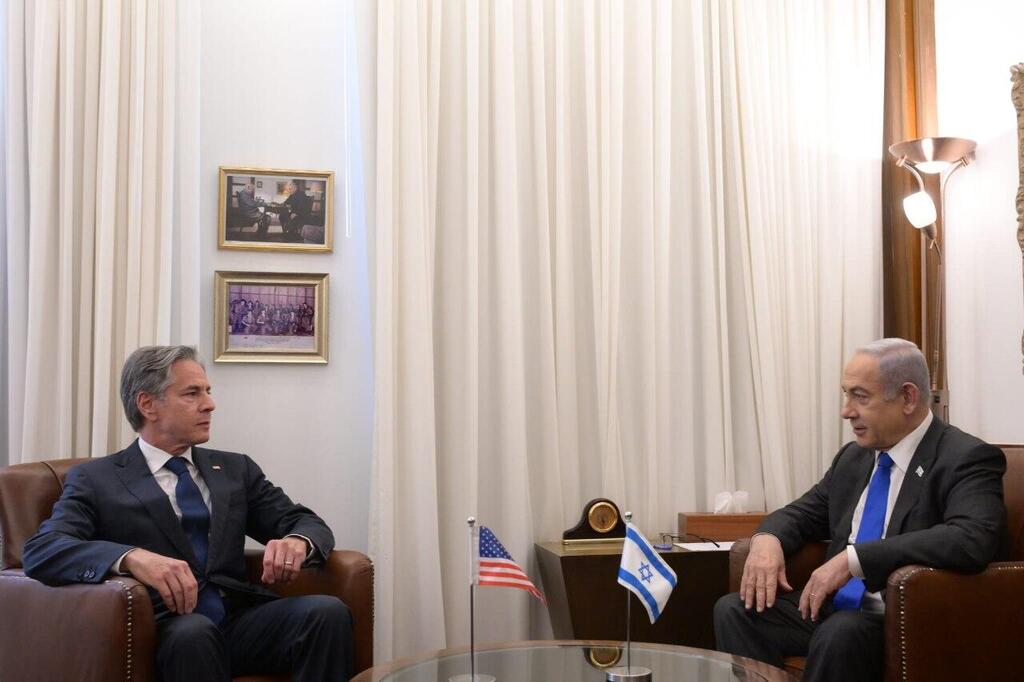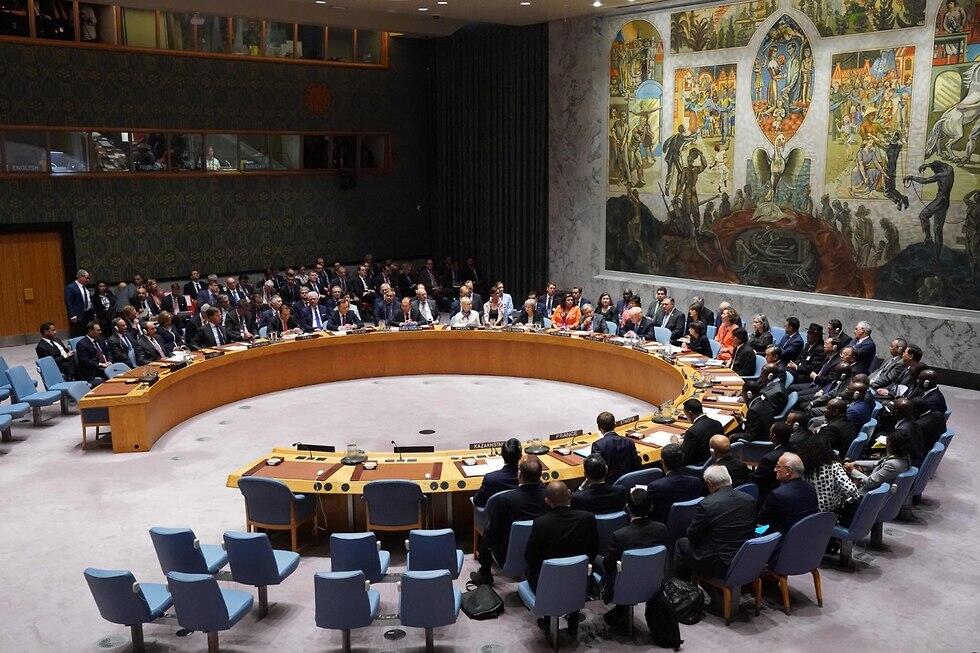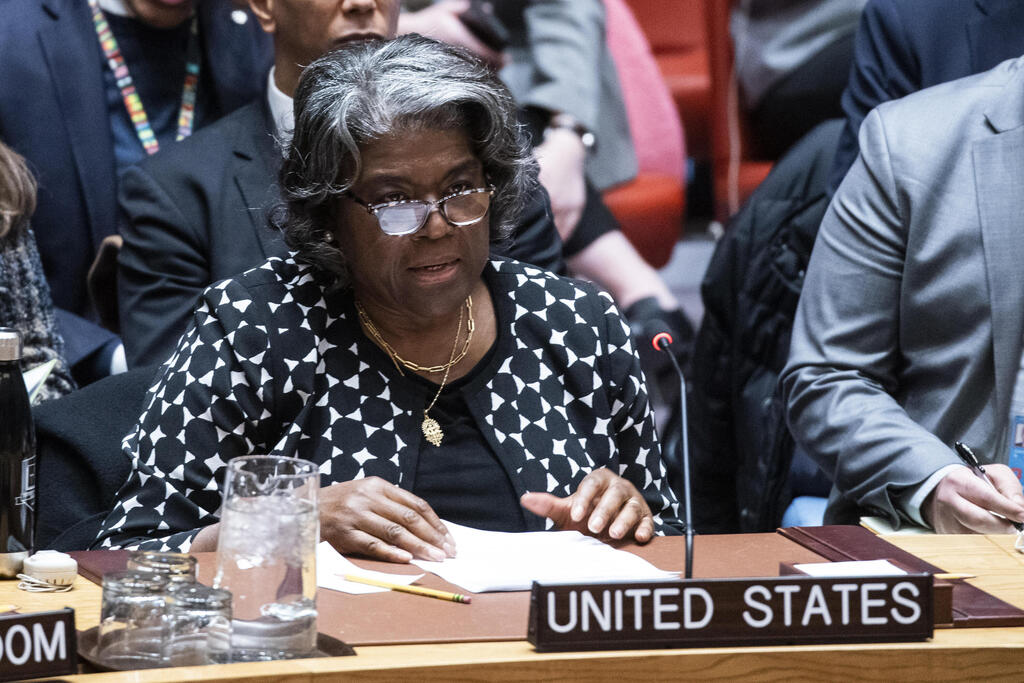Getting your Trinity Audio player ready...
The United Nations Security Council on Monday adopted a U.S.-drafted resolution backing a proposal outlined by President Joe Biden for a cease-fire between Israel and the Palestinian terrorist group Hamas in the Gaza Strip.
Russia abstained from the vote, while the remaining 14 council members voted in favor. The U.S. finalized its text on Sunday after six days of negotiations among the council.
Biden laid out a three-phase cease-fire plan on May 31 that he described as an Israeli initiative. Some Security Council members questioned whether Israel had accepted the plan to end the fighting in Gaza.
The resolution welcomes the new cease-fire proposal, "which Israel accepted, calls upon Hamas to also accept it, and urges both parties to fully implement its terms without delay and without condition."
"We're waiting on Hamas to agree to the cease-fire deal it claims to want," U.S. Ambassador to the UN Linda Thomas-Greenfield told the council before the vote. "With every passing day, needless suffering continues."
The resolution also goes into detail about the proposal, and spells out that "if the negotiations take longer than six weeks for phase one, the cease-fire will still continue as long as negotiations continue."
In addition to the joint call that effectively equates Israel and Hamas, Israel has informed Washington that the current wording of the proposal does not reflect Israel's deal framework. The approved text stated that Israel agreed to end the war and completely withdraw its forces from Gaza in exchange for the return of all hostages. However, Israeli officials emphasize that their agreement to end the war was conditional on Hamas no longer being the ruling power in Gaza, and they claim that they did not consent to the wording presented to the Security Council.
Hamas welcomed the resolution, saying it is ready to cooperate with mediators over implementing the principles of the plan.
A senior Israeli official told Ynet that the resolution "restricts Israel's freedom of action." According to him, "The U.S. accepted very problematic formulations to prevent the Russians from vetoing, and the fact that Algeria supported the proposal tells the whole story."
Meanwhile, U.S. Secretary of State Antony Blinken is visiting Israel for the eighth time since the outbreak of the war. During his visit, Blinken is holding a series of meetings to push for an agreement between Israel and Hamas, including talks with Prime Minister Benjamin Netanyahu, Defense Minister Yoav Gallant and opposition members Benny Gantz and Yair Lapid. Blinken also met with Foreign Minister Israel Katz, who described their conversation as positive, noting they discussed the war in Gaza, the release of hostages and the Iranian threat.
The meeting between Blinken and Netanyahu was attended by Strategic Affairs Minister Ron Dermer, National Security Advisor Tzachi Hanegbi and Blinken's advisor Derek Chollet. According to a U.S. State Department spokesperson, Blinken reiterated that Washington and other world leaders support President Biden's comprehensive proposal, which aims to achieve an immediate cease-fire in Gaza, the release of all hostages and a significant and sustained increase in humanitarian aid distribution across Gaza. Blinken emphasized the U.S. commitment to Israel's security, ensuring that the events of October 7 will never be repeated.
3 View gallery


US Secretary of State Antony Blinken and Prime Minister Benjamin Netanyahu meet in Jerusalem
(Photo: Amos Ben Gershom/GPO)
The spokesperson added that Blinken stressed the proposal's potential to secure peace along Israel's northern border and continued integration with regional countries. He updated Netanyahu on ongoing diplomatic efforts to plan for the post-war period, highlighting the importance of these efforts in providing long-term peace, security and stability for both Israelis and Palestinians. Blinken also underscored the importance of preventing the war from spilling over.
Earlier, Blinken said that Hamas is the obstacle to achieving a cease-fire and urged all regional governments to "press Hamas to agree to a deal." In response, Hamas accused Blinken of being biased in favor of Israel and claimed that he was an impediment to a future agreement between the parties.
Despite Blinken's remarks, recent messages from Washington suggest that although President Biden's proposal was supposedly an Israeli initiative, it is unclear whether Netanyahu is actually willing to accept it. The prime minister has repeatedly emphasized, including as recently as Sunday, that he will not agree to commit to ending the war in exchange for the release of the hostages. This stance is echoed by ministers Itamar Ben-Gvir and Bezalel Smotrich.
In contrast, in his resignation speech, Benny Gantz called on Netanyahu to accept the proposed framework, pledging his support even from outside the government, a stance also backed by Yair Lapid.
Meanwhile, senior Biden administration officials have discussed the possibility of negotiating a unilateral deal with Hamas for the release of the five Israeli American hostages still held in Gaza if the current talks don’t result in a deal, NBC News reported on Monday, citing two current and two former U.S. officials.
According to these officials, such talks would not include Israel and would be conducted through Qatari mediators. The White House declined to comment on the dramatic report.




